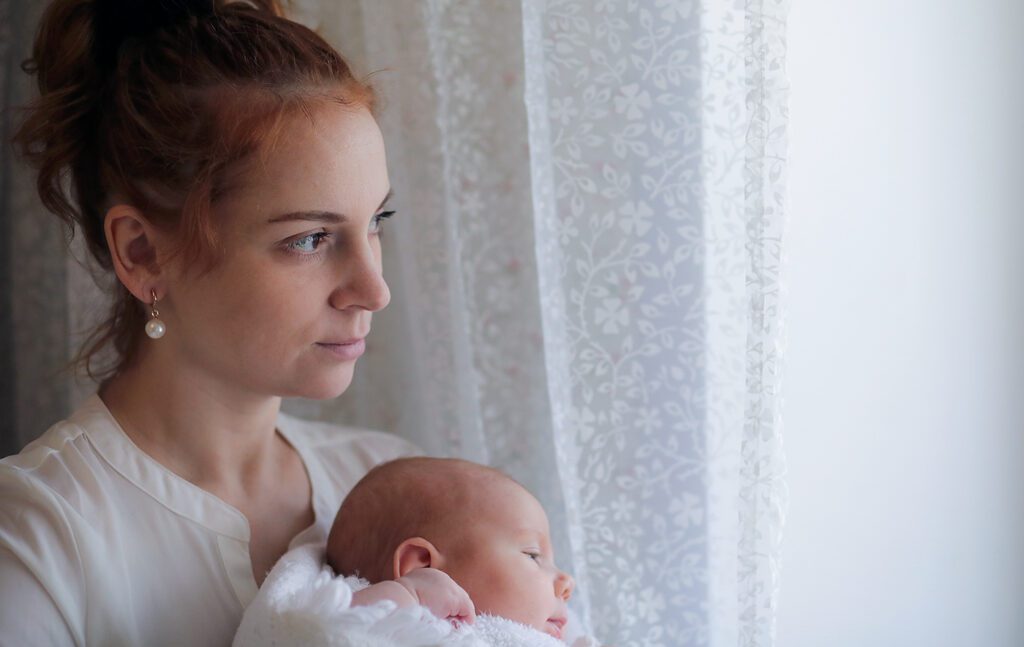It may be OCD
| If you have a new child, you know how precious they are. They can be the very first thing you think about when you wake up, and the last thing you think about when you (try to) go to sleep. You know you love your child so much, and would do anything to protect them. Except that during diaper changes, you find yourself face to face with genitals and you cannot stop yourself from staring. And then you ask yourself, “Why am I staring at my child’s genitals? Could I be some kind of pervert? Only a bad parent would think about their kid’s private parts. But I keep staring, so what if I’m a bad kind of parent? I know I love my kid to death, but what if my staring means I’m going to hurt them? Am I a bad parent” You find yourself drifting off during bath time staring and thinking and before you know it, bath time is over and you were stuck in your head the whole time, missing out on the memories of your child’s early years. Maybe you think about talking to your spouse, because you feel guilty for having these thoughts. Or you find yourself scrolling online in all of our free time on a private browser looking for answers. Perhaps, you even avoid changing your baby’s diaper or bathing them, out of fear that you can’t be trusted. The anxiety and worry can feel overwhelming, and it can interfere with your life as a parent. If these are familiar experiences, you may have Obsessive-Compulsive Disorder, or OCD. Postpartum themes in OCD are very common for new parents of any gender, and they don’t mean you’re a bad parent. Indeed, the intense anxiety and guilt felt by parents with OCD is due to the great care, love, and responsibility they feel for their child. |
What if I’m a bad person?
| Some people experience very disturbing thoughts that they don’t want to have, and don’t match up with their own true wants and interests. These are called intrusive thoughts. These kinds of thoughts are distressing, disturbing, and make us want to avoid them as much as possible, try to find out why we are having them, get rid of them, or avoid the things they make us afraid of. Sometimes people who have experiences like being preoccupied with their child’s genitals might be afraid that they could possibly be attracted to their child or do something inappropriate, even if they know this couldn’t be true. They might also think, “Only a bad person would think about things like that!” and feel shame and embarrassment. Intrusive thoughts, by their definition, are not representative of what we truly believe, and are often rooted in what we are afraid could happen if we weren’t so careful. As such, they often attach themselves to the things we care about the most, and the topics where we are the least tolerant of uncertainty or danger. |
How to treat OCD related to staring
| If you’ve ever found yourself in one of these situations, you might be feeling very scared and hopeless, and hesitant to reach out. Many people, especially new parents, can experience what are known as intrusive thoughts (or even images) that don’t match up with how we actually feel. We find ourselves doing anything we can do to prove these thoughts wrong—like we know they are—but no amount of internet scrolling or reassurance from our spouse is ever enough. This pattern is what characterizes Obsessive-Compulsive Disorder (OCD). Individuals with OCD can experience intrusive, disturbing thoughts and feel that they must go through a lot of effort in order to avoid whatever is making them feel anxious, try to solve it, or feel reassured. These kinds of behaviors might make some people feel better, but for people with OCD, it actually makes symptoms much worse, because the partial or temporary relief it brings only reinforces the belief that the intrusive thought was real and meaningful. The standard treatment for OCD is Exposure Response Prevention (ERP), which is an evidenced-based treatment for OCD. By learning to sit with anxiety and uncertainty without engaging in compulsions, you can gain a greater tolerance for these thoughts and doubts, and they may cause less distress over time. |
If you’re struggling with OCD, you can schedule a free 15-minute call today with the NOCD care team to learn how a licensed therapist can help. At NOCD, all therapists specialize in OCD and receive ERP-specific training. ERP is most effective when the therapist conducting the treatment has experience with OCD and training in ERP.
We look forward to working with you.

